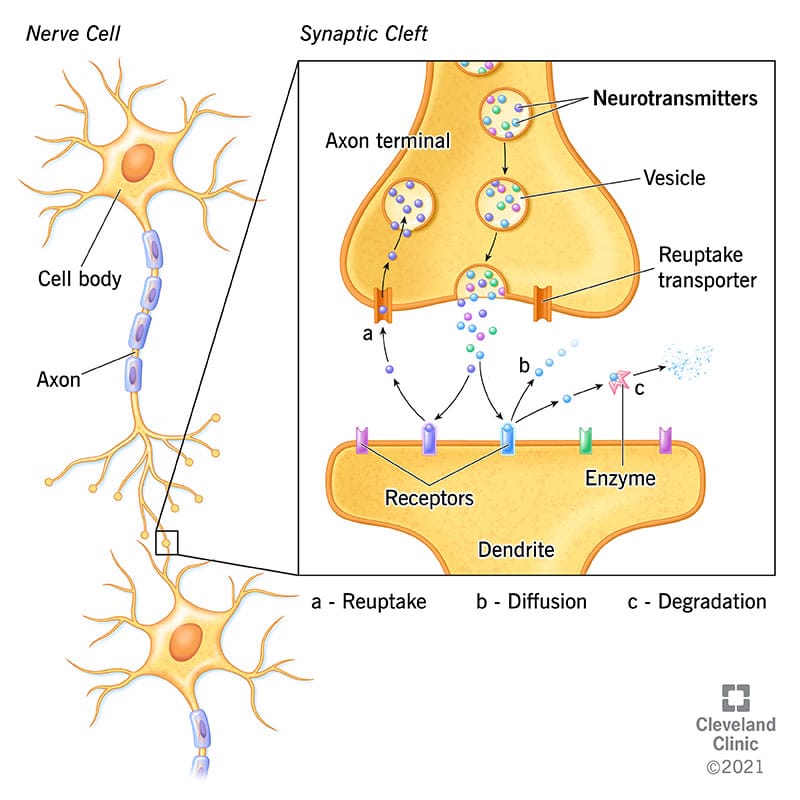
Demystifying Neurotransmitters: Your Body's Chemical Messengers
Demystifying Neurotransmitters: Your Body’s Chemical Messengers
Have you ever wondered how your body communicates internally? Enter neurotransmitters – the unsung heroes behind countless bodily functions. From movement to sensation, from heartbeats to cognitive processes, neurotransmitters play a pivotal role in transmitting messages across your nervous system.
Picture this: within your neurons lie neurotransmitters, ready to relay chemical signals from one nerve cell to the next target cell, be it another nerve cell, a muscle cell, or a gland. They form the backbone of your body’s communication network, ensuring seamless coordination of various bodily processes.
Your nervous system, akin to a vast web of electrical circuits, orchestrates everything from muscle movements to organ functions. It’s the conduit through which your body interacts with the world, processing information and orchestrating responses. In essence, your nerves serve as the conduits of this constant exchange of signals, vital for your body’s optimal functioning.
But how exactly do neurotransmitters operate? Imagine billions of nerve cells, each comprising a cell body, an axon, and an axon terminal. The axon terminals house neurotransmitters, stored within synaptic vesicles. As electrical signals traverse a nerve cell, these vesicles release neurotransmitters into the synaptic junction, the gap between nerve cells and their target cells.
Once released, neurotransmitters bind to specific receptors on the target cell, akin to keys fitting into locks. Depending on the neurotransmitter type, they elicit one of three actions: excitatory, inhibitory, or modulatory. Excitatory neurotransmitters stimulate the target cell to propagate the signal, while inhibitory ones block further transmission. Modulatory neurotransmitters tweak communication between cells, influencing a broader network of neurons simultaneously.
After delivering their message, neurotransmitters undergo one of three fates: diffusion, reuptake, or degradation. They either dissipate, get reabsorbed for reuse, or broken down by enzymes, ensuring precise signaling within the nervous system.
The diversity of neurotransmitters is staggering, with scientists identifying over a hundred variants, each with distinct roles. From amino acids like glutamate and GABA to monoamines such as serotonin and dopamine, these chemical messengers regulate everything from mood to motivation, from pain perception to arousal.
However, when neurotransmitters falter, health issues can arise. Whether due to imbalances, receptor malfunctions, or reuptake abnormalities, disruptions in neurotransmitter function can lead to various disorders. Alzheimer’s, depression, epilepsy – the list goes on, underscoring the critical role of neurotransmitters in maintaining health.
Recognizing this, scientists have developed medications targeting neurotransmitter pathways to treat a myriad of conditions. Whether by inhibiting reuptake, blocking receptors, or modulating release, these drugs aim to restore balance within the nervous system, alleviating symptoms and improving quality of life.
In essence, neurotransmitters are the silent conductors orchestrating the symphony of your body’s functions. Understanding their intricacies sheds light on the marvels of human physiology and offers hope for innovative treatments to come.
So, the next time you marvel at your body’s complexity, remember the unsung heroes behind the scenes – neurotransmitters, the chemical messengers shaping your every thought, feeling, and action.
Dr Abhay Talwalkar –
M.D( Hom)
Consultant women’s health


